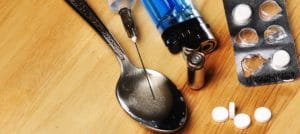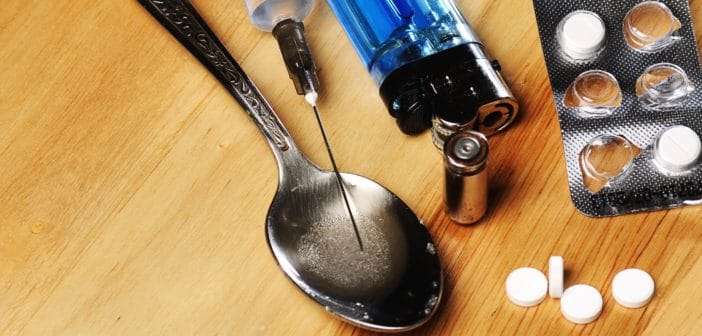 We all know about the War on Drugs but these days, the term is starting to have a double meaning. This all has to do with the fact that there’s a debate out there around which is better: medication-assisted treatment or the good old-fashioned abstinence-based kind, with no clear winner in sight. This is perhaps best illustrated by a recent article in The Washington Post, which breaks down the latest bullet points of those pushing for using medications for opiate withdrawal and those still holding on to the hope of completely abstinent sobriety and recovery.
We all know about the War on Drugs but these days, the term is starting to have a double meaning. This all has to do with the fact that there’s a debate out there around which is better: medication-assisted treatment or the good old-fashioned abstinence-based kind, with no clear winner in sight. This is perhaps best illustrated by a recent article in The Washington Post, which breaks down the latest bullet points of those pushing for using medications for opiate withdrawal and those still holding on to the hope of completely abstinent sobriety and recovery.
This all seems to beg the question: what is the true definition of “sober”?
Mounting Evidence
The Post story opens with a focus on Marvin Seppala, the founder of the old-school treatment center Hazelden, who began his rehab career pushing for complete abstinence but then evolved into supporting the use of medicine.
In 2007, Seppala brought the expertise he honed at Hazelden to a rehab in Oregon. The now defunct facility, Beyond Addictions, was experimenting with what was then a new drug, buprenorphine, aka Suboxone. The evidence seems simple enough—those in Seppala’s Minnesota rehab center started bailing on abstinence to use drugs again and those in the Oregon facility were taking this new medication and doing quite well.
It’s been almost 10 years since medication-assisted treatment was considered a revolutionary concept and there are even more on the market now, including methadone and Naltrexone. And while many doctors and brain researchers seem to believe these drugs are the most effective form of treatment for prevention of relapse available, most of America, and its rehabs, aren’t on board with them on that.
What’s the Hold Up?
The reasons why almost two-thirds of existing rehabs and treatment facilities are anti these meds are numerous. Consider these: Because the drugs are opiates, the people taking them are still, it could be said, high; Suboxone is reportedly harder to get off of than heroin; most insurance plans don’t cover the drugs; they’re not yet widely understood by medical professionals, few of whom have actual training in helping with addiction to begin with; the “old timers” who might or might not be rehab owners who got sober the old-fashioned way (12-step) don’t think they’re necessary to stay clean; and it will cut down on revenue for inpatient facilities or be too costly if they do want to offer the medication but can’t afford to hire a doctor to dispense it.
Meanwhile, people continue to die of overdoses in record numbers, which are supposedly a likelier risk for those in abstinence-based treatment, and Obama even addressed our nation’s opiate epidemic in his State of the Union address. There is no doubt politicians are getting increasingly bold about embracing opiate replacement therapy or medication-assisted treatment. Hillary Clinton has publicly supported it and so has Chris Christie. Also, an increasing number of drug courts are allowing methadone clinics as treatment as opposed to just AA meetings. Yet, it’s still not the mainstream Plan A for heroin and opiate addiction.
Physical vs. Psychological vs. Who Even Knows Anymore
I guess what I always come back to is the idea that these people existed on the planet prior to ever consuming their first opiate. Was that state of existence so tumultuous that no amount of spiritual programming or non-opiate medication or therapy could help it? If they do need a drug to function, why not consider non-opiate alternatives like SSRI’s and mood stabilizers? Maybe it’s all in the lingo. Perhaps we should shift how we view Suboxone and methadone. There’s medication and then there’s drugs, right? The two words have the potential to conjure very different images.
I predict medication-assisted treatment will become the norm. We take a pill for everything else in this country, so why not addiction? There are also a growing number of anti-12-step people gunning to push for other ways of getting and staying sober. A lot of people are not down with G-O-D in 2016, no matter how many times AA and NA’s try to convince them God doesn’t have to be a bearded old man atop a cloud in the sky. Most MAT advocates, including Marvin Seppala, do maintain that these medications are best dispensed in combination with group and individual therapy—or at least some sort of inner psychological component. Getting to the root of the reasons why people abused drugs is something proponents of abstinence and 12-step recovery always want to reiterate.
Medication-Assisted Alcoholism?
What about alcohol though? As someone who had issues controlling the amount she consumed when she started drinking but never felt physically addicted (I guess it could have gotten to the point of physical addiction if I hadn’t stopped), I struggle with the urge to “check out” every day, the way I used to be able to do with alcohol. Full disclosure: I “checked out” about a gazillion times while writing this, via Twitter, Facebook and other Internet garbage. I guess that’s my new Pinot Noir. Anyway, can’t I take something from a pharmacy that will just give me a little buzz? Not like full-on drunk but the fuzzy feeling I used to get from one glass of wine? Is there a pill that delivers that and nothing more? Still, even if that did exist, wouldn’t it eventually just feel like not enough of a buzz? One can only assume I’d end up just drinking one day when my prescription for Buzz-ophine is out and it’s a Sunday and I’m conveniently parked in front of a liquor store.
So can’t the same be said for medicine that helps with opiate withdrawal? They are just getting a little high—just enough for them to be able to function—but will that high eventually not be enough?
We really don’t know the long-term consequences of these medications. We do know that everyone is different and not everyone responds the same to various types of treatment. There will probably continue to be trial and error, gray areas and missteps. I think the key is deciphering between a solution and a crutch.
But that might just be a line that always stays blurred, much like the freeway lanes when many of us used to be driving home after a night out.
Sponsored DISCLAIMER: This is a paid advertisement for California Behavioral Health, LLC, a CA licensed substance abuse treatment provider and not a service provided by The Fix. Calls to this number are answered by CBH, free and without obligation to the consumer. No one who answers the call receives a fee based upon the consumer’s choice to enter treatment. For additional info on other treatment providers and options visit www.samhsa.gov.




